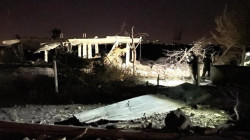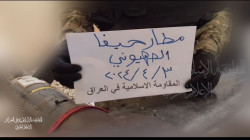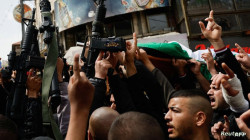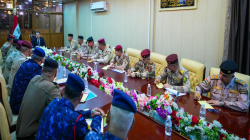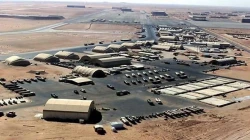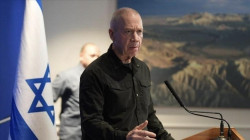Iraq’s fragile economy reels under Israeli-Iranian conflict
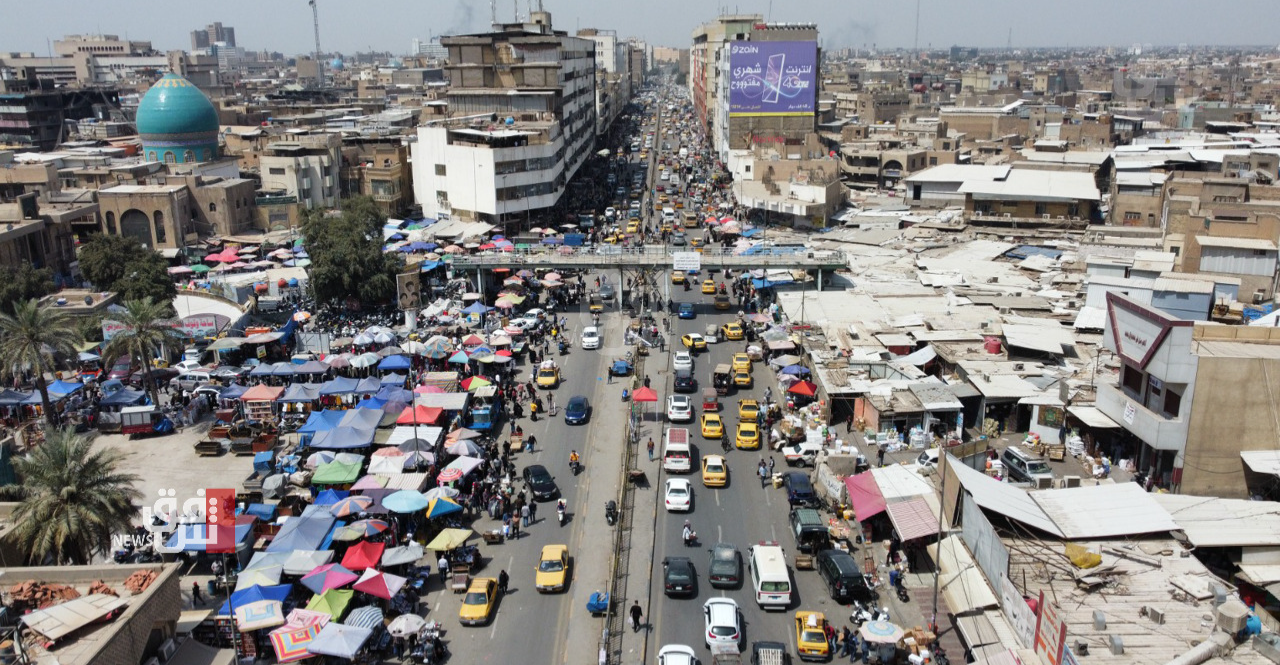
Shafaq News/ Iraq is showing clear signs of economic stagnation following the eruption of conflict between Iran and Israel. Citizens are reducing spending, hoarding cash, and losing trust in the local currency.
According to economists and ordinary Iraqis interviewed by Shafaq News, the downturn is visible in Iraq's cooperative markets and hypermarkets, which are experiencing a steep drop in customer numbers. These retail spaces are now struggling with rising prices and weakened purchasing power.
Economist Ali Dadoosh described the crisis as a complex case of "compound stagflation," explaining to Shafaq News that this situation is characterized by increased government cash spending, such as employee compensation, against a backdrop of weak actual consumer activity due to uncertainty and eroding confidence in the national currency.
"Lack of trust in the dinar is redirecting funds toward dollar speculation instead of investment or consumption," Dadoosh added. "This feeds the exchange rate crisis and drives up the cost of imported goods."
He provided a concrete example that employee compensation rose from 13.3 trillion dinars (~9.05B USD) in Q1 2024 to 15.3 trillion dinars (~10.4B USD) in Q1 2025, which theoretically indicates increased movement in the real and monetary markets. However, "we are seeing weak purchasing activity in small and large outlets like hypermarkets and local shops."
Iran is a key supplier of non-oil goods to Iraq, with annual imports estimated at $20 billion. But over the past two months, Iranian exports to Iraq have fallen to just $1.5 billion, according to Iranian customs data. This drop suggests that continued warfare will disrupt Iraq's trade balance and economic stability even further.
The root of this, Dadoosh said, lies in deep recession, uncertainty, and fear of what lies ahead due to the ongoing war between Iran and Israel.
He also warned that this behavior would lead the Central Bank of Iraq to increase currency issuance, further undermining confidence in the dinar. "This shift toward the parallel dollar market will raise the exchange rate and, in turn, the price of goods and services, deepening the crisis."
Dadoosh proposed a set of short-term solutions, including controlling excess liquidity using flexible monetary tools, such as open market operations to reduce surplus dinar liquidity that is going into dollar speculation.
Also, reactivating short-term deposit certificates (CDs) with attractive interest rates for banks and citizens, "would help absorb cash outside the banking sector."
"We should stimulate local demand intelligently by issuing temporary purchase vouchers or offering direct support to low-income groups, redeemable only in local or cooperative markets."
He also considers temporary tax exemptions or deferments for small shops to encourage price reductions and stabilize markets.
Sense Of Financial Instability
Economist Ahmed Eid told Shafaq News that a "sense of financial instability" is now widespread among broad segments of society amid worsening economic crises and declining purchasing power.
"Continuous price increases and currency volatility are rooted in weak financial and monetary policies," he said. "These factors have eroded salaries and pushed households to adopt a 'defensive consumption' model: minimizing spending and saving in anticipation of emergencies caused by regional instability."
Eid emphasized that this behavioral shift doesn't just reflect economic fragility, but also contributes to market stagnation and weakens the economic cycle, which relies heavily on consumption.
"With no clear economic vision, limited investment, and stagnant income levels, there's now a significant gap between what people earn and what they need to live."
Eid called for serious, realistic measures that begin by ensuring income stability for citizens and enhancing market oversight to prevent price manipulation. "We also need to expand social protection and launch a package of economic reforms to restore trust between the state and its citizens."
The stagnation is confirmed by official figures. Cooperative hypermarkets initially recorded sales of around 700 million dinars (~476,000 USD) per branch during their first few months of operation, according to the Ministry of Trade. While no recent sales data has been published, the sharp decline in foot traffic indicates falling revenue.
Fatima Abdul-Hussein, 35, said, "My monthly salary no longer covers my family's needs as it used to. Even with my husband's income, we can only afford essential goods because of rising food prices like meat and fruit."
Riah al-Hassani echoed the sentiment, "Public sector salaries aren't enough to meet household needs anymore because of inflation and market instability."
He added, "Many products that saw price spikes during the initial crisis have not decreased. Instead, prices continued to climb, which has a negative impact on the financial stability of many Iraqi families."
"I bought items from a store at one price, only to find the same items more expensive just days later in the same shop. This price instability is alarming," Luhayyib Abdul-Ghani shared a personal experience.
Although the Ministry of Trade insists it holds sufficient reserves of essential goods and is ready to meet demand across all provinces—including the Kurdistan Region—many Iraqis remain unconvinced.
"The Ministry says it can handle any global crisis and that delays in ration distribution are due to inspection processes," said one citizen. "But with war ongoing and fears of wider conflict, people are cutting back on spending to prepare for the worst."
Abdul-Karim al-Zamili, 45, expressed deep concern, "If this war escalates, the economic consequences for the entire region will be severe. Iraq will be one of the hardest-hit countries. Families are already reducing spending."
"No one can predict what might happen," he said. "Anxiety and fear are making us save every dinar and spend only on necessities."
For now, while the Israeli-Iranian war has not physically reached Iraq, its economic shockwaves are already being felt—in markets, in households, and in a growing sense of fear that hangs over the country’s financial future.
Written and edited by Shafaq News staff

